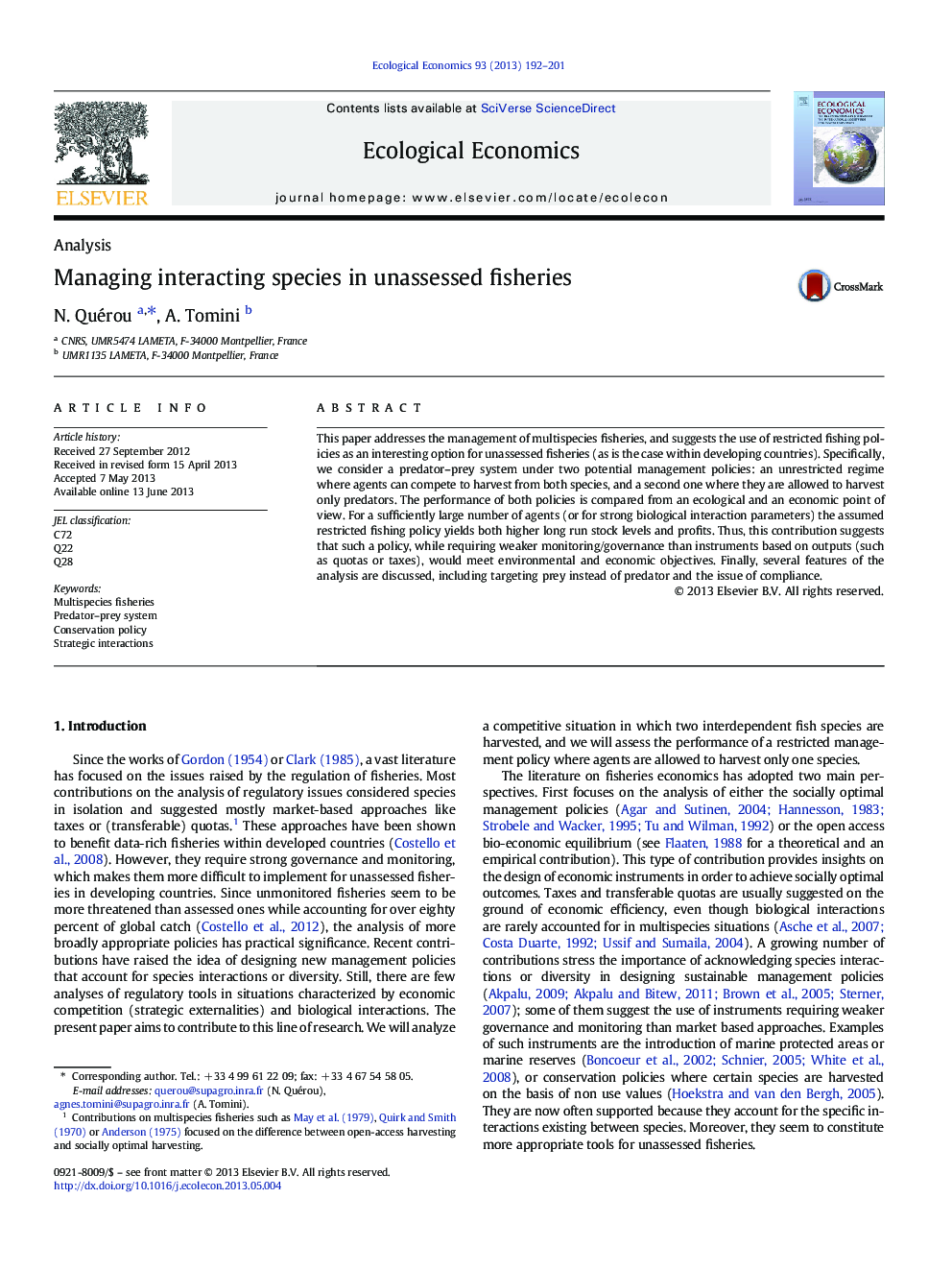| Article ID | Journal | Published Year | Pages | File Type |
|---|---|---|---|---|
| 5049950 | Ecological Economics | 2013 | 10 Pages |
â¢This paper addresses the management of multispecies fisheries.â¢It suggests the use of restricted fishing policies for unassessed fisheries.â¢In a predator-prey model, there are cases where restricted fishing may yield both higher long-run stock levels and profits.â¢Restricted fishing may meet conservation and economic objectives and requires less monitoring than output-based instruments.
This paper addresses the management of multispecies fisheries, and suggests the use of restricted fishing policies as an interesting option for unassessed fisheries (as is the case within developing countries). Specifically, we consider a predator-prey system under two potential management policies: an unrestricted regime where agents can compete to harvest from both species, and a second one where they are allowed to harvest only predators. The performance of both policies is compared from an ecological and an economic point of view. For a sufficiently large number of agents (or for strong biological interaction parameters) the assumed restricted fishing policy yields both higher long run stock levels and profits. Thus, this contribution suggests that such a policy, while requiring weaker monitoring/governance than instruments based on outputs (such as quotas or taxes), would meet environmental and economic objectives. Finally, several features of the analysis are discussed, including targeting prey instead of predator and the issue of compliance.
